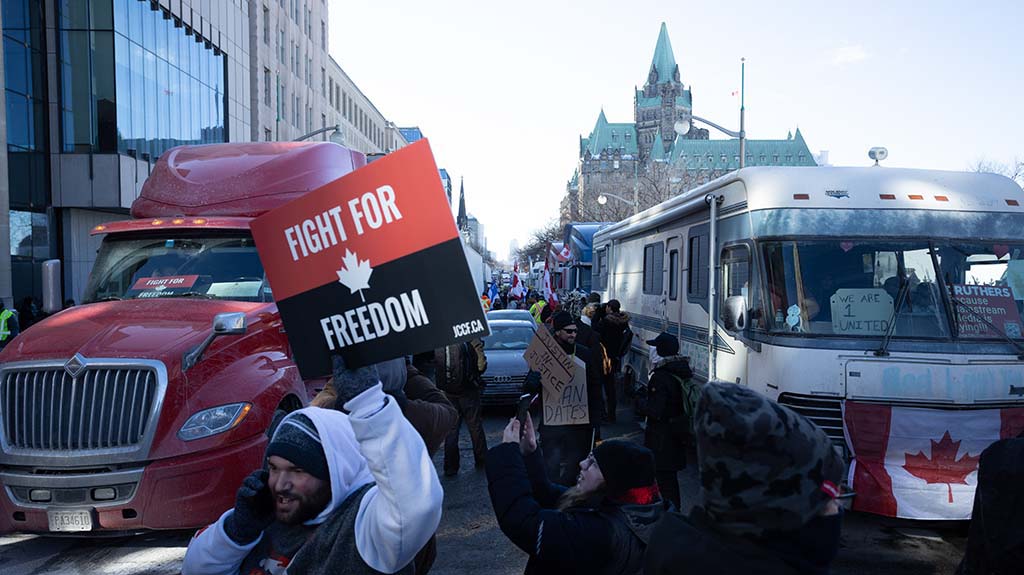Business groups seek end to supply chain disruptions caused by trucker protest
Associations have walked fine line on issue of vaccine mandates.
- February 11, 2022 |
-
 Walt Williams
Walt Williams


Associations have walked fine line on issue of vaccine mandates
At least four business groups want an end to blockades at the U.S.-Canada border by protestors who oppose Canada's COVID-19 restrictions, saying their actions are putting significant strain on businesses.
The U.S. Chamber of Commerce, National Association of Manufacturers and Business Roundtable issued a joint statement Thursday urging the Canadian government to "act swiftly" to address the trade disruptions caused by the protests. In a separate statement, the American Trucking Associations said it opposed protests that disrupt public safety and jeopardize economic security but noted that it had warned about the consequences of a vaccine mandate.
"We held serious concerns about the unintended impact a vaccine mandate would have on our nation's supply chain and ongoing COVID response efforts, which is why ATA challenged the (U.S. Occupational Safety and Health Administration) rule all the way to the Supreme Court—where we prevailed," ATA CEO Chris Spear said.
The protests in Canada began as a demonstration against COVID vaccine mandates for truckers but has since expanded into opposition against all public health measures taken during the pandemic as well as Prime Minister Justin Trudeau's government. In recent days, protestors have blockaded bridges along the U.S.-Canada borders with semi-trucks, leading to automobile plant closures in both countries as vital supply chains for the industry were severed, the Associated Press reported.
The Biden administration called on the Canadian government on Thursday to use its federal powers to end the blockade. Similar demonstrations have been proposed for the U.S. by right-wing activists, but so far they have failed to materialize.
The blockades "are adding to the significant supply chain strains on manufacturers and other businesses in the United States," the Chamber, NAM and Business Roundtable warned in their joint statement.
"The business community is rolling up its sleeves to find workarounds and keep facilities up and running, but we are already seeing some production cuts, shift reductions and temporary plant closures," the groups said. "The North American economy relies on our ability to work closely together, including our manufacturing sectors. We need to apply the same spirit of cooperation to tackle this problem."
Business groups have walked a fine line on vaccine mandates, which first triggered the protests. Many associations support businesses establishing vaccine requirements for employees. Some have mandated vaccines for their own staff, including NAM and the Chamber. However, those same groups generally oppose government vaccine mandates. ATA and other associations took the Biden administration to court last year for requiring companies with at least 100 employees to implement vaccination requirements. The U.S. Supreme Court overturned the rule in January.
"We'll continue to advocate on behalf of our members for policies that enable the industry to keep the supply chain moving, and we'll do so in ways that do not hinder the safe and timely flow of commerce that everybody depends on," Spears said.
